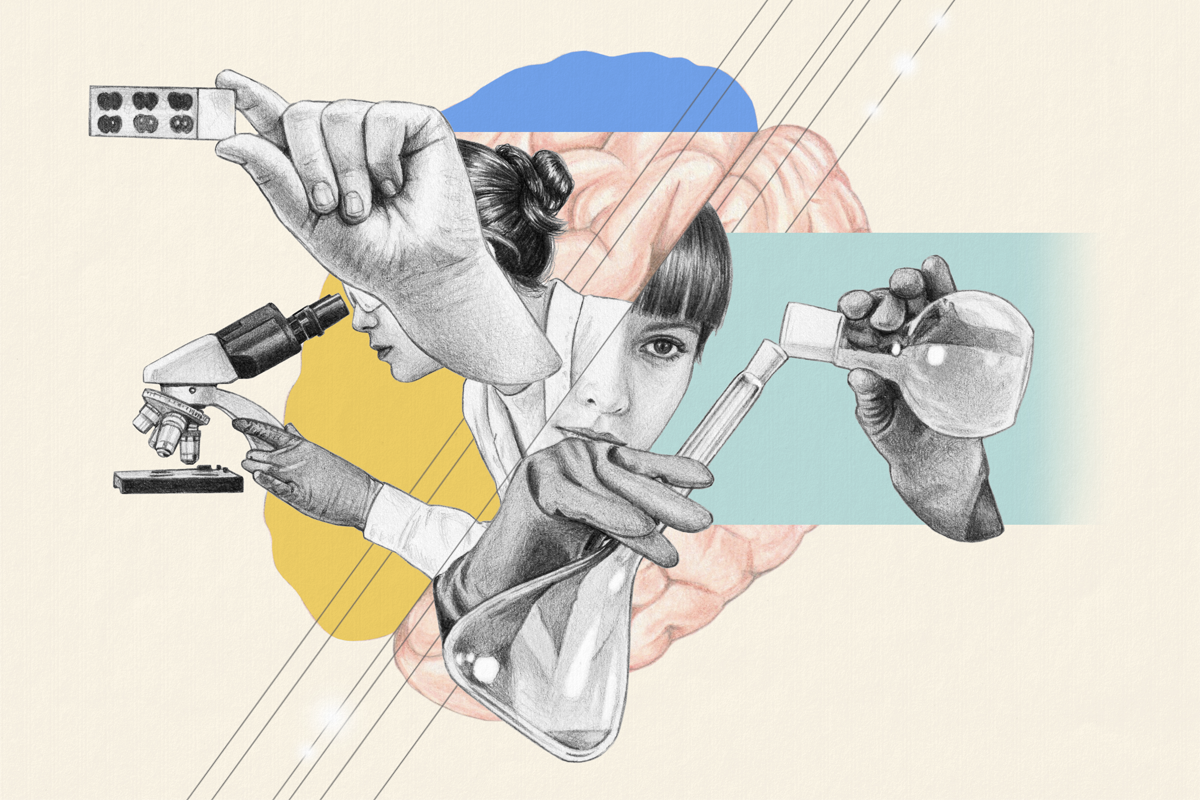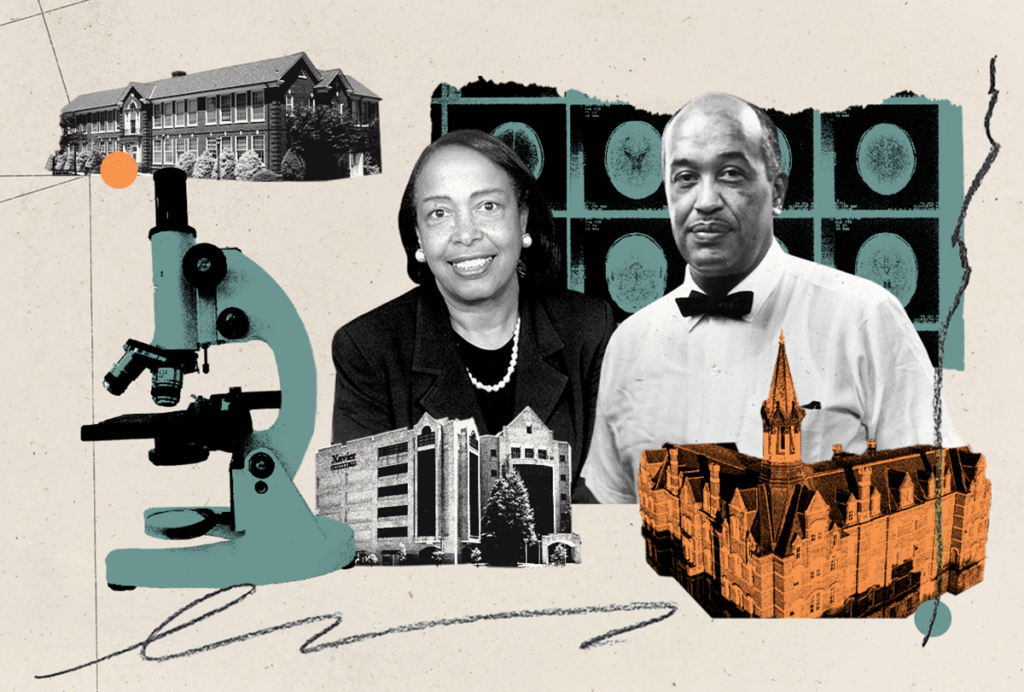The Transmitter: Can you tell us how the “Stories of Women in Neuroscience” podcast started?
Nancy Padilla-Coreano: When I was doing my postdoctoral research at the Massachusetts Institute of Technology, I was one of the postdoc representatives for the seminar committee. It was really cool because I felt like I had a seat at the table. A friend and I were tasked with collecting name suggestions from the community. We created this form, collected names for a month and then sat down to narrow the names down to a few. My friend and I are into this conversation, discussing names, when my friend says, “Nancy, we cannot use this list.”
And I said, “What are you talking about? These are awesome scientists.”
And he replied, “There’s not a single woman on this list.” There were more than 50 names and not a single woman. And an hour into it, I had not even realized. I left that day thinking, “What can I do to educate myself?” It was like a project of redemption.
At the time, I was listening to a bunch of podcasts, so that was my idea: I’m going to interview women; I’m going to learn; and I’m going to educate myself. I have a friend, Catie Profaci, who did a lot of science communications, and I emailed her with the idea. She was super excited about it and agreed that this was needed. She helped recruit more co-founders, and we became a team of people. Together we came up with the concept for “Stories of Women in Neuroscience” (“Stories of WiN”). I really wanted interview-based episodes for connection and storytelling. And we also wanted to open the conversation up in multiple ways, so we came up with the polished profile component. It has been five years and 140 episodes and profiles so far.
TT: You and the “Stories of WiN” team published a paper in 2022 highlighting some of the lessons you learned from recording the lives of women neuroscientists. Can you share what those takeaways were?
NP-C: After the first 50 stories, we thought it would be nice to try to take away some observations and lessons from this project. There are certain patterns here that help people, and women specifically, succeed in their careers.
One of the observations is the importance of early research opportunities, especially paid research opportunities. Paid research opportunities can be life-changing for those who are underrepresented in science. The second observation is how to manage self-doubt. We describe it as imposter syndrome in academia. Another observation is that it’s hard to blend life and research. How do you find that balance? How do you sustain that long term? Another observation was the struggle with breaking the mold of what a scientist should be like or look like.
So we, the members of “Stories of WiN,” recommend several action items based upon these observations. For example, increasing research accessibility, providing paid opportunities and incentivizing good mentoring. Mentoring is particularly important. Because of the gender biases in our society, mentorship seems to be a women’s problem, but it shouldn’t be. It’s similar to the idea of making academia more family-friendly. It seems pretty obvious that there should be institutional policies that are family-friendly for trainees and for faculty. And some universities have started doing that. But ideally, this would be something that the National Institutes of Health recognizes as a universal problem, and then there could be policies that go beyond actions that only really well-endowed schools can afford.
The last action item is recognition. Because of our gender biases, it’s harder for women to recognize themselves. It’s so important to be nominated for awards. There is a point in your career when everything is nomination based, and only people who have received that award before are able to nominate the next winner. Whatever biases are existing in the pool then get passed on generationally. So recognizing the work of women is super important.





